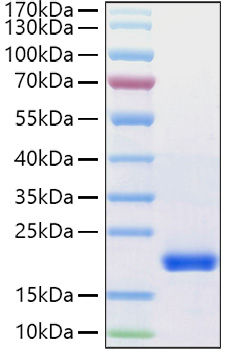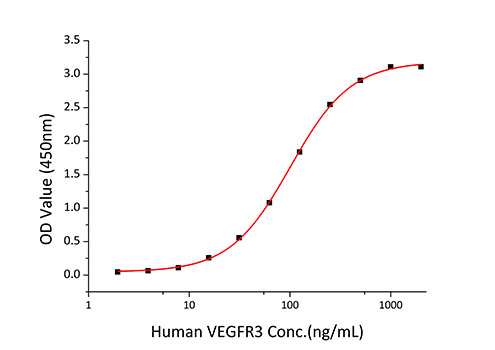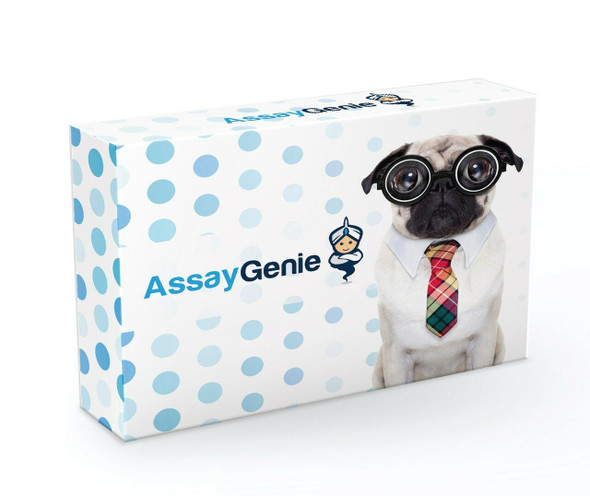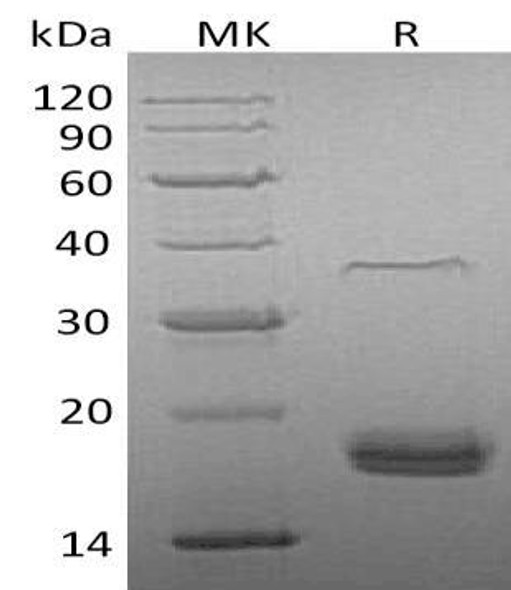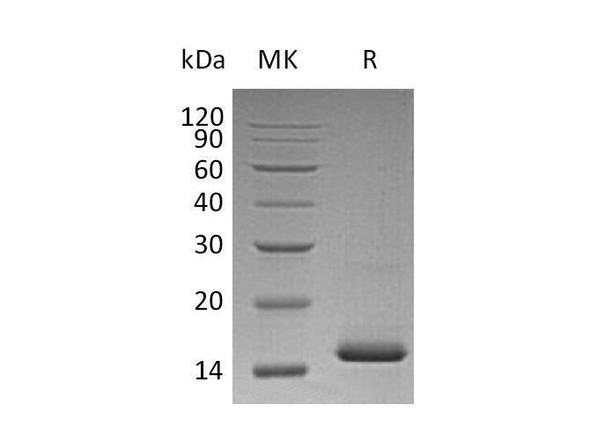Description
Recombinant Human VEGF-D/FIGF Protein
The Recombinant Human VEGF-D/FIGF Protein is a biologically active recombinant protein that plays a significant role in various cellular processes and signaling pathways in human biology. This protein is widely employed in immunological research, cell biology studies, protein-protein interaction analyses, and therapeutic development, providing researchers with a reliable tool for investigating VEGF-D/FIGF function and its implications in health and disease.
This product (SKU: RPCB1426) is produced using HEK293 cells and features a C-His tag for convenient detection and purification. The protein exhibits a calculated molecular weight of 13.02 kDa with an observed molecular weight of 18-22 kDa under denaturing conditions, achieving ≥ 95 % as determined by SDS-PAGE.. Functional bioactivity has been validated through rigorous quality control assays, confirming its suitability for demanding research applications.
Key Features
| High Purity by Affinity Chromatography | |
| Mammalian & Bacterial Expression Systems | |
| High lot-to-lot consistency via strict QC |
| Product Name: | Recombinant Human VEGF-D/FIGF Protein |
| SKU: | RPCB1426 |
| Size: | 10 μg , 20 μg , 50 μg , 100 μg |
| Reactivity: | Human |
| Synonyms: | VEGFD, FIGF, VEGF-D, vascular endothelial growth factor D, FIGF, VEGF-D |
| Tag: | C-His |
| Expression Host: | HEK293 cells |
| Calculated MW: | 13.02 kDa |
| Observed MW: | 18-22 kDa |
| Gene ID: | 2277 |
| Protein Description: | High quality, high purity and low endotoxin recombinant Recombinant Human VEGF-D/FIGF Protein (RPCB1426), tested reactivity in HEK293 cells and has been validated in SDS-PAGE.100% guaranteed. |
| Endotoxin: | < 0.1 EU/μg of the protein by LAL method. |
| Purity: | ≥ 95 % as determined by SDS-PAGE. |
| Formulation: | Lyophilized from a 0.22 μm filtered solution of PBS, pH 7.4. |
| Bio-Activity: | Measured by its binding ability in a functional ELISA. Immobilized Human FIGF/VEGF-D at 1 μg/mL (100 μL/well) can bind Human VEGFR3 with a linear range of 1.953-100.773 ng/mL. |
| Reconstitution: | Centrifuge the vial before opening. Reconstitute to a concentration of 0.1-0.5 mg/mL in sterile distilled water. Avoid vortex or vigorously pipetting the protein. For long term storage, it is recommended to add a carrier protein or stablizer (e.g. 0.1% BSA, 5% HSA, 10% FBS or 5% Trehalose), and aliquot the reconstituted protein solution to minimize free-thaw cycles. |
| Storage: | Store at -20℃.Store the lyophilized protein at -20℃ to -80 ℃ up to 1 year from the date of receipt. After reconstitution, the protein solution is stable at -20℃ for 3 months, at 2-8℃ for up to 1 week. |
Vascular endothelial growth factor D (VEGF-D), also known as C-fos induced growth factor (FIGF), belongs to the platelet-derived growth factor/vascular endothelial growth factor (PDGF/VEGF) family. FIGF protein is active in angiogenesis, lymphangiogenesis, and endothelial cell growth. FIGF protein is secreted as a non-covelent homodimer in an antiparallel fashion. Human FIGF protein is expressed in adult lung, heart, muscle, and small intestine, and is most abundantly expressed in fetal lungs and skin. FIGF protein is structurally and functionally similar to VEGF-C. Therefore, FIGF protein binds and activates VEGFR-2 (Flk1) and VEGFR-3 (Flt4) receptors, and may particularly be involved in cancers, such as breast cancer, epithelial ovarian carcinoma and so on.


